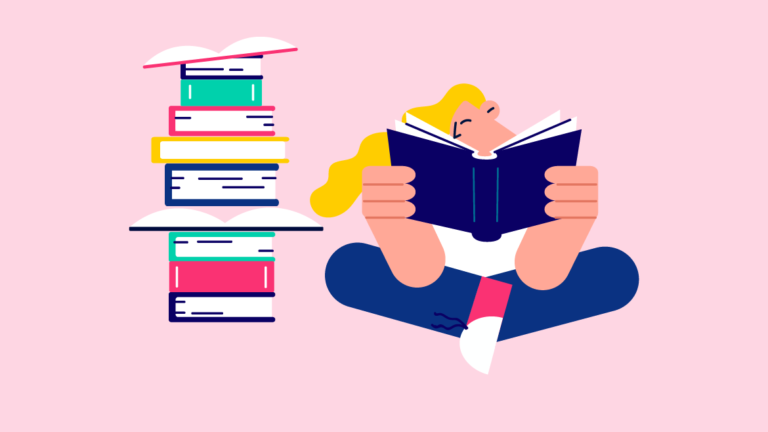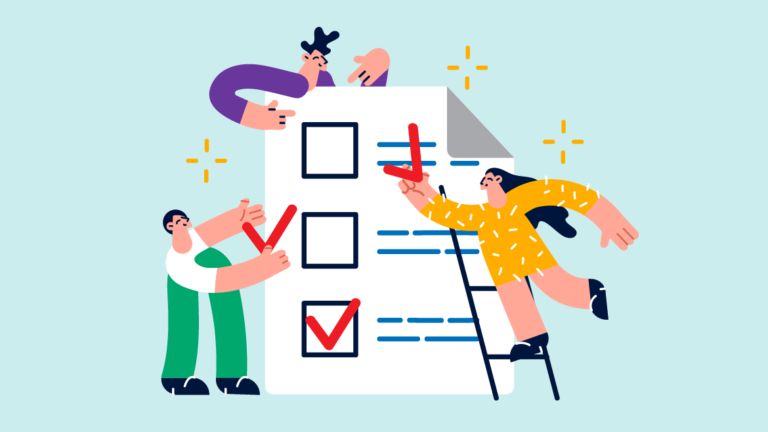Studying is exhaustive, that’s clear. What is worse, the output of your work can be unpredictable. Sometimes I get my shit together, research for my thesis for 4 hours straight, only to end up without a single line of text in the word doc.
Sounds familiar?
But did you know there are 3 principles you can implement right now to significantly improve your productivity & gain control over your studies? Keep reading, and you will be able to learn more effectively that 90% of your peers do.
Productivity curve
First of all, let’s visualize our productivity curve during a typical study shift. In ideal case it takes off as we get down to the topic, reaches a peak after a while and then gradually decreases over time. Three stages, let’s name them start, peak & end.
Why does this matter?
Well it turns out, you can apply specific psychological laws to improve your learning progress at every stage.
1. Productivity Principle: Aim to focus on a single task to finish it in one take
In the beginning of the study shift it is all about pushing your productivity to the top as quickly as possible. If you miss the chance, you will have a tough time concentrating throughout the whole shift and your peak productivity will be low as well. As you might have expected, most students mess it up right from the start.
I can’t emphasize this enough:
Do not let anything distract you. It goes without saying that all social media and other notifications should be muted. Ideally, you should put your phone upside down or even put it away from the table completely.
Btw, check out our bonus article on Top 10 ways to break free from social media slavery.
But it’s more complicated than shutting down Instagram though. According to Carlson’s law, “continuous work takes less time and energy than when it is done several times”. It means you should always have some kind of a tangible finished result at the end of your shift to avoid double work. This is only possible, however, if you choose a single small task to focus on, which leads us to the next surprising fact:
Multitasking is bad for your productivity.
It has been scientifically proven that a human brain cannot focus on more than one activity at a time. When we multitask, what is happening in reality is constant switching between various activities, which eats up a lot of our energy.
2. Productivity Principle: Harness the Pareto law, identify the 20% to be 80% through
Every freshman knows the Pareto law. It says “80% of the effects are the product of 20% of the causes”. But are you sure you use it right?
Let’s point out one common misconception: the Pareto rule doesn’t mean you can spend five times less time on your studies with almost the same effect. This would have been awesome, but in reality it just states that only 20% of the time spent on a particular task, you will be producing any useful result.
How can you actually use this?
While you probably spend most of the warm up structuring your solution approach & searching for information, you should not hesitate to proceed to the execution part as soon as your productivity reaches its peak. Try to identify those golden 20% of ideas you have generated so far, and work hard to develop and refine them leaving out everything else. This way you make sure your word doc is not empty after 4 hours.
3. Productivity Principle: Do not push yourself to the limit
Contrary to the widespread belief, you should not work yourself to the bone. And don’t worry, there is a scientific law which proves this point as well. According to Illich’s law, “beyond a certain threshold, the human efficiency decreases, even becomes negative”.

It is pretty much clear that we are tired by the end of the working session. However, you will be surprised when learn how many people regularly keep pushing themselves despite hardly producing any content. This way you may end up doing more harm than good, making mistakes in calculations for example.
Here’s the deal:
Every individual has limited energy capacity to distribute across their priorities, which should be restored afterwards. If you cram for 10 hours a day, you will burn down your 3-days fuel supply, the restoration will take longer and your next day will be wasted. A better alternative would be to study 5 hours and go party afterwards, seriously, Illich would confirm.
Hope you liked our suggestions on how to improve your studying productivity. Let us know in the comments whether you learnt anything knew from the article!
Stay tuned!





